How intentional has your career journey been so far? For many, career progression often resembles a meandering path, influenced largely by opportunities that come through their network rather than a clear, purposeful direction. This approach, which I refer to as the “career path of little resistance,” might feel comfortable, but it often lacks vision and intentionality. In this blog post, we’ll delve into the importance of crafting a purpose-driven career and provide you with a structured approach to defining and pursuing your professional aspirations.
The Power of Vision in Career Planning
Imagine I hid a million dollars’ worth of gold somewhere in Paris. Finding it would be an incredibly daunting task, given the vastness of the city. However, if I provided a more specific clue—let’s say the gold is buried on the southwest corner of the glass triangle outside the Louvre—the task suddenly becomes much more manageable. The same principle applies to your career. By having a clear vision of your desired destination, you can develop a more focused and effective plan to reach your goals.
Creating Your Career Requirements Document
The cornerstone of a purpose-driven career is a comprehensive requirements document. Think of it as a detailed blueprint that outlines all the essential elements of your ideal career. This document should encompass various aspects, including:
- Location: Where do you want to work? Are you open to relocating?
- Compensation: What salary range are you targeting? Are other forms of compensation, such as bonuses or stock options, important to you
- Company Culture: What type of work environment do you thrive in? Are you looking for a collaborative team or a more independent role?
- Company Size: Do you prefer working for a startup, a mid-sized company, or a large corporation?
- Team Size: Are you more comfortable in a small team where you can wear multiple hats, or do you thrive in larger, more specialized teams?
- Financial Metrics: Are you interested in working for a company with a specific revenue or EBITDA range?
- Industry: Are you passionate about a particular industry or sector?
- Ownership Model: Are you looking for a publicly traded company, a privately held firm, or perhaps a nonprofit organization?
The list can go on, and it’s crucial to tailor it according to your personal preferences and career goals.
Getting Started: Journaling Your Career Thoughts
One of the most common challenges I encounter when speaking with executives is the difficulty they face in determining their next career move. The starting point I always recommend is simple yet powerful: journaling. By taking the time to reflect on your career aspirations and jotting down your thoughts, you can start to gain clarity and direction.
Here’s a simple exercise to get you started:
- Get a Notebook: Dedicate a notebook exclusively for your career journal.
- Start Journaling: A few times a week, take a moment to write down your thoughts, ideas, and reflections about your career. Keep it simple—bullet points are more than enough.
- Consistency is Key: Whether you spend an hour journaling or just add a single bullet point, the important thing is to maintain consistency.
- Review and Reflect: After a few weeks of journaling, set aside some time to review your notes. You’ll likely start to see patterns emerging and a clearer vision of what you want your career to look like.
- Give Your Vision Life: Discussing your career aspirations with trusted colleagues, mentors, or friends can help solidify your vision and provide valuable insights.
- Create Your Requirements Document: Based on your reflections and discussions, start drafting your career requirements document. This will serve as your roadmap as you move forward with purpose and intentionality.
Moving Forward with Purpose
Armed with your requirements document and a clearer vision of your career goals, you’re now ready to pursue your next opportunity with purpose. Whether you’re considering a job change, seeking a promotion, or exploring a new industry, having a well-defined plan will enable you to make informed decisions and navigate your career path more effectively.
Conclusion
Crafting a purpose-driven career is not just about following the path of least resistance or taking opportunities as they come. It’s about being intentional, visionary, and proactive in defining and pursuing your professional aspirations. By creating a comprehensive requirements document, journaling your career thoughts, and maintaining consistency in your reflections, you can gain the clarity and direction needed to build a fulfilling and successful career.
So, how purposeful has your career been? It’s never too late to start crafting a career path that aligns with your values, passions, and aspirations. Begin your journey towards a purpose-driven career today!
#Purpose #Career #Executive #Placement #Search #ReneeVincent #Win #ExecutiveLeadership #HireBetter #Interview


